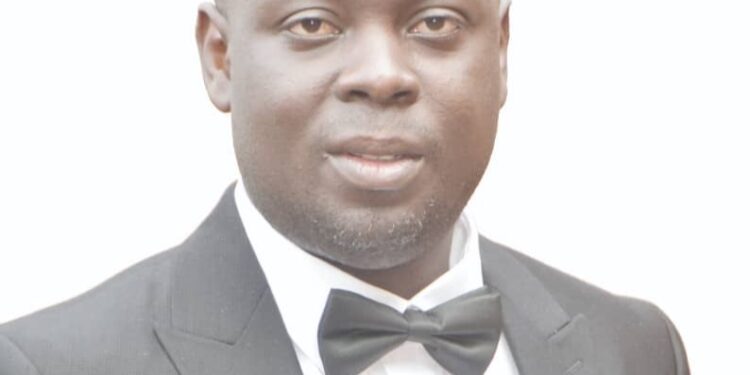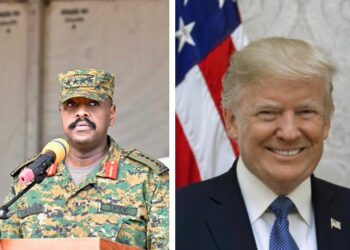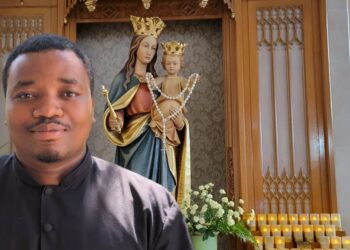As UPDF is busy smoking out the ADF terrorists in the jungles of Congo, President Yoweri Museveni is initiating a fresh tidying up of the methods of the Police and security organs in the way they handle and interact both with the masses and criminal elements. Of great interest in his cleanup strategy is to rid the forces of any traces of application of torture as a means to extract confessions from suspects in custody.
In official communications to security chiefs he described torture as “traditional” and “unnecessary and wrong and must not be used again if it was being used as I see some groups claiming in the media”.
By traditional, the president elaborates that the use of torture on suspected criminals (okutatsya) in the fight against crime was not only commonly used in our traditional societies but was accepted and encouraged. Yet like other traditional practices that had their own mistakes, and such ideas not in consonance with logic should be abandoned.
In an enlightened world where investigators are equipped with top notch skills of evidence gathering and the availability of modern gadgets like the now famous CCVTs, who needs torture? It is extra to necessity and a grim reminder of how far set we are from the old and troubled Uganda of pre-1986.
The UPDF’s presence in Congo was not informed by vague information extracted from captured terrorists; it was informed by accurate intelligence and leads from years of one clue leading to another until the climax during last year’s Kampala bombings that left no doubt as to who had been terrorising Ugandans all along. That is why the army’s presence in Congo is justified and accurate even in its precision on where to hit and how. It’s why the Congolese Government willingly partnered in the operations. Was the Congolese government tortured to make that move? No! They understand our methods and trust them. Ugandans should, the better, trust Museveni with his methods even when, sometimes, they seem slow.
Apart from expressly barring the use of torture, the president wants security organs (police) to be most humane in managing public gatherings and using proper methods of arresting suspects or subduing them in case they are resisting arrest by, for example, overpowering them, and handling them, while in custody. The basis for his move is the “fundamental starting point of the NRA principle of being an army of the people, but also serving well the law-abiding foreigners that visit Uganda”.
The president is considerate to the extent that he bars security personnel from beating or pushing back people using their open palms, barking at them and, much less, applying tools of coercion on them when they are not endangering anybody’s life, or property. He advises politely restraining them and getting them to cooperate with law and order managers who are their “brothers, sisters, fathers, mothers, uncles, aunties, cousins, in-laws, friends, etc”.
The president calls for strict adherence with the law and UN guidelines on the use of force and urges law-abiding Ugandans to take note of and support these measures because they are for their own good. I trust that if his guidance is taken seriously, we are going to see a better, pro-people police force that can independently fight crime and win the confidence of law-abiding Ugandans.
So far so good as far as the President’s heart and mind goes! Amidst this mindset and operational reform and improvement in policing and civil-security relations, there stands something I could call the elephant in the room. This animal is unacknowledged by those who benefit from its presence while others appear to underestimate its influence on the security status at play. That is the role of spoiler groups that call themselves opposition but are, rather, selfish and sadistic actors without regard to the general tranquility and individual wellbeing of Ugandans, but while pretending to care and fight for their rights.
These actors are mainly in the political arena, using the cover of free democratic practice to create a semblance of anarchy and total absence of civil rights in Uganda. They do this by failing to live up to standards as law-abiding players in national affairs and competitors with NRM who can win and lose some, and become anarchists looking to plunge the country into total turmoil from which they have the luxury of detaching themselves to go and be with their foreign sponsors. Without naming who, I know most Ugandans know these actors of illwill. They must stop abusing the conscience and reasonability of Ugandans, and playing on the minds of donors who bankroll their evil activities of hoodwinking citizens and setting them up in provocative situations with security and wish each other to cause bloodshed!
Yes, sometimes mistakes happen in policing operations but those are typically operational and isolated and usually the responsible officers are held accountable. Even then, the violations do not happen out of the blue; they happen when those caught in those situations defy instructions of police in a way that communicates active motive to both challenge authority and harm the lives and property of Ugandans.
If anybody is unfairly treated, as happens world over, there is always a way for redress but the cure is for those who need their rights respected and protected to respect the rights of others and know their limits and portion in building a country that is safe and works for all.
As a side note: Constitutionally, the President is the Commander-In-Chief (C-I-C) of the UPDF. Most people take it that he is the C-I-C of (all) armed forces including police and prisons. For the sake of Bazzukulu’s understanding, given his long established yearning to reform all armed forces and how they relate with citizens, what is at stake if he simply becomes C-I-C of all armed forces? Could police’s problems have to do with the “indirect” nature of command that the president has with the force?
The author is the Deputy Presidential Press Secretary
Do you have a story in your community or an opinion to share with us: Email us at editorial@watchdoguganda.com













